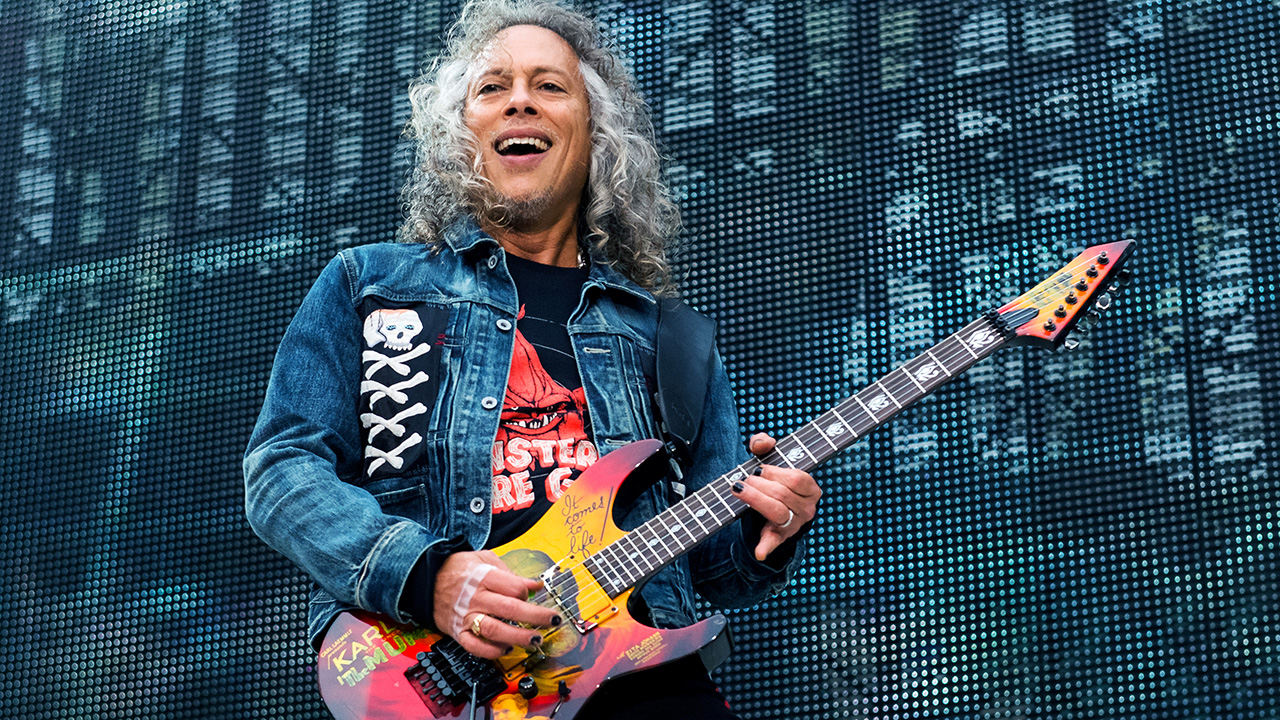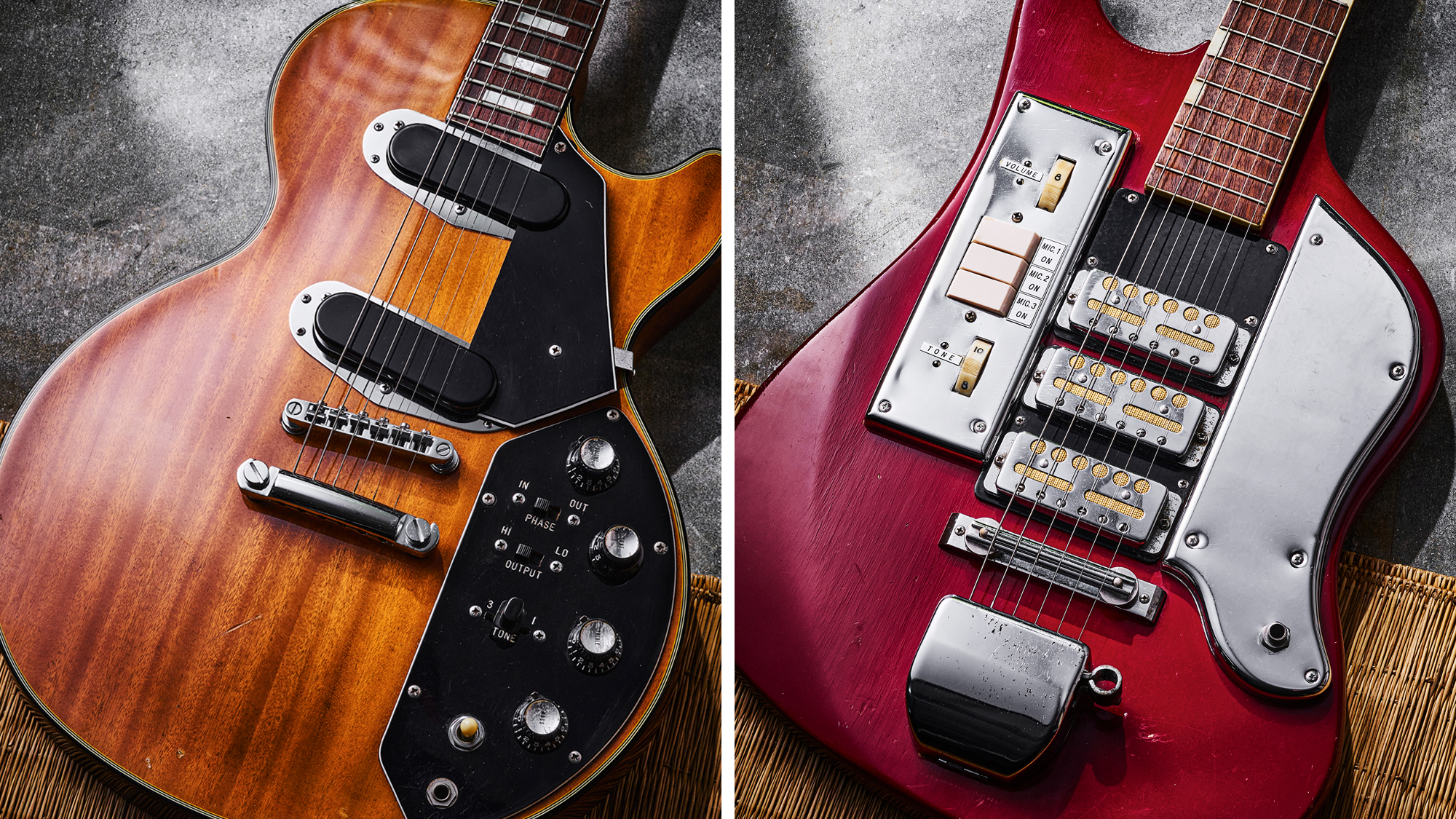“If there is a Jane’s Addiction in 2025, there will be new music. But you never know if there’s going to be a band at all”: Eric Avery on overcoming JA’s “unthinkable” time without Dave Navarro and his brief stints with Metallica and Smashing Pumpkins
The “backbone” of Jane’s Addiction reveals what he learned from his time with rock royalty, how he sculpted his unconventional approach to bass, and why cellphones are changing the way he thinks about tone
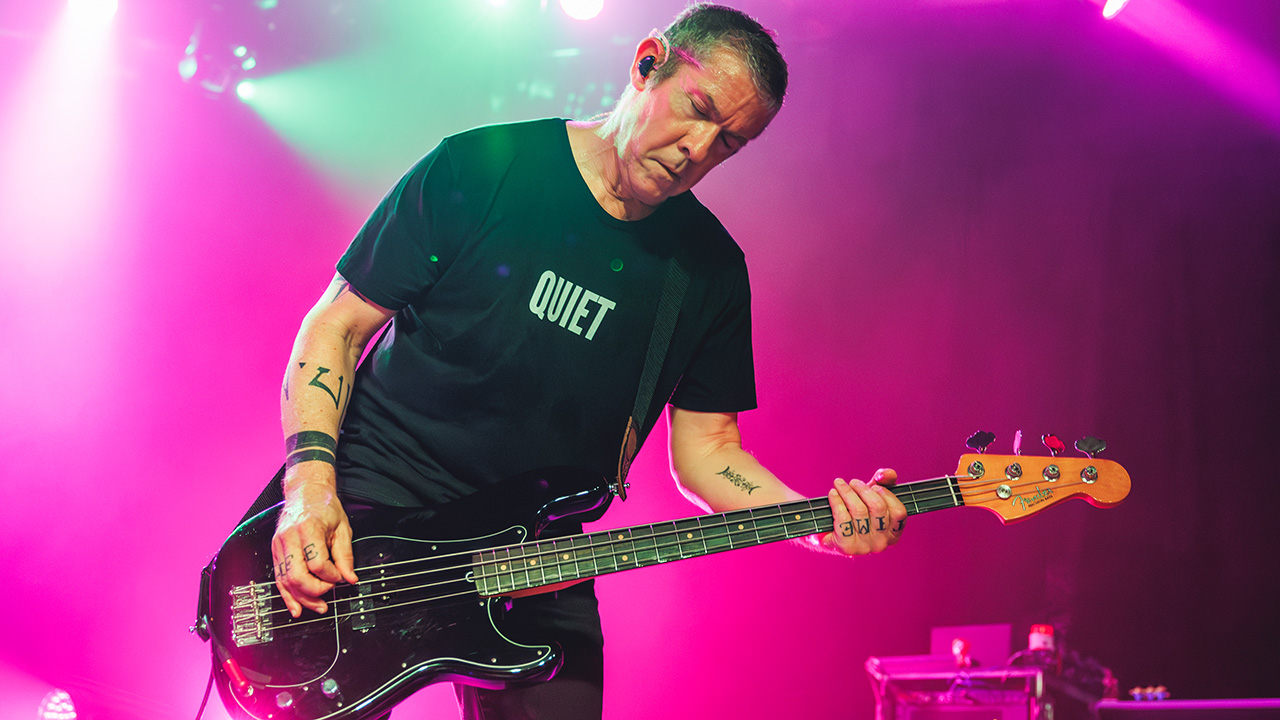
Time has been kind to Jane’s Addiction: their songs were – and are – awesome. Jane Says, Been Caught Stealing and Three Days are just a few of their early calling cards, delivered before the original lineup of Perry Farrell, Dave Navarro, Stephen Perkins and Eric Avery broke up in 1991.
There’s been more music from Jane’s over the years, with 2003’s Strays and 2011’s The Great Escape Artist. But those albums featured bassist Chris Chaney; Avery, the man Navarro calls the backbone of the band, was nowhere to be found.
Whatever dogged the band in the ‘90s and again in the ‘00s when Avery returned for a brief period – has been dealt with. The next thing was to make new music; which happened in form of Imminent Redemption, the originals’ 2024 single.
Chaney is a towering talent, but the new track proves that Avery brings something unique to the group. “I’m trying to make something that sounds musical and complete by itself,” he tells Bass Player.
“Those are often the building blocks of what become Jane’s songs. I don’t think Jane’s has ever been a band known for chord progressions or doing a lot of clever things. It’s about grooves, vibe and feel.”
Some feared the reunion wouldn’t work out, but with Navarro back on stage after a two-year battle with long Covid, the band trekked across the UK and Europe, and they’re now crossing the States in a joint affair with Love and Rockets.
But Avery remains cautious: “I still don’t know if we’re a band that you ever assume will be here a year from now. That being said, yeah… there is a revitalization and a reconnection. Let’s hope it lasts.”
Get The Pick Newsletter
All the latest guitar news, interviews, lessons, reviews, deals and more, direct to your inbox!
If you sat down to compose a bassline right now, what would that look like?
“There are two approaches. One is a basic approach that everyone knows. If I were to play in another band with pre-existing chord structures, I might try to find notes that exist in the chord progression that I could use to repeat and say very little while the chords are changing over it.
“But I think the defining way I do this is born from how I initially played bass, and not knowing about the bass. I was just in a room by myself and did a lot of chordal stuff, because I was trying to make something that sounded musical and complete with four strings. That’s still my approach. I want to make something that sounds complete.”
What are the keys to harnessing your bass tone?
“Early on, I wasn’t paying attention to tone. I just liked bass that sounded like my influences – Joy Division, New Order, Echo and the Bunnymen. It was the '80s when it was very brassy chorusing, though I didn’t do a lot of choruses. But there was a brighter, brassier sound.”
Did you feel that sound lent itself to the chordal things you were interested in?
“I think that lends itself to doing chordal stuff. The double-stops, thirds, and fifths – the clarity really helps with that.”
But it’s changed. What are you doing now?
“In the last 10 years I’ve tried incorporating more overdrive and distortion into the sound. I was looking for more upper partials and things that lent themselves to showing up better in small speakers. The way people hear music these days on phones and headphones impacts the tone I’m working with now.”
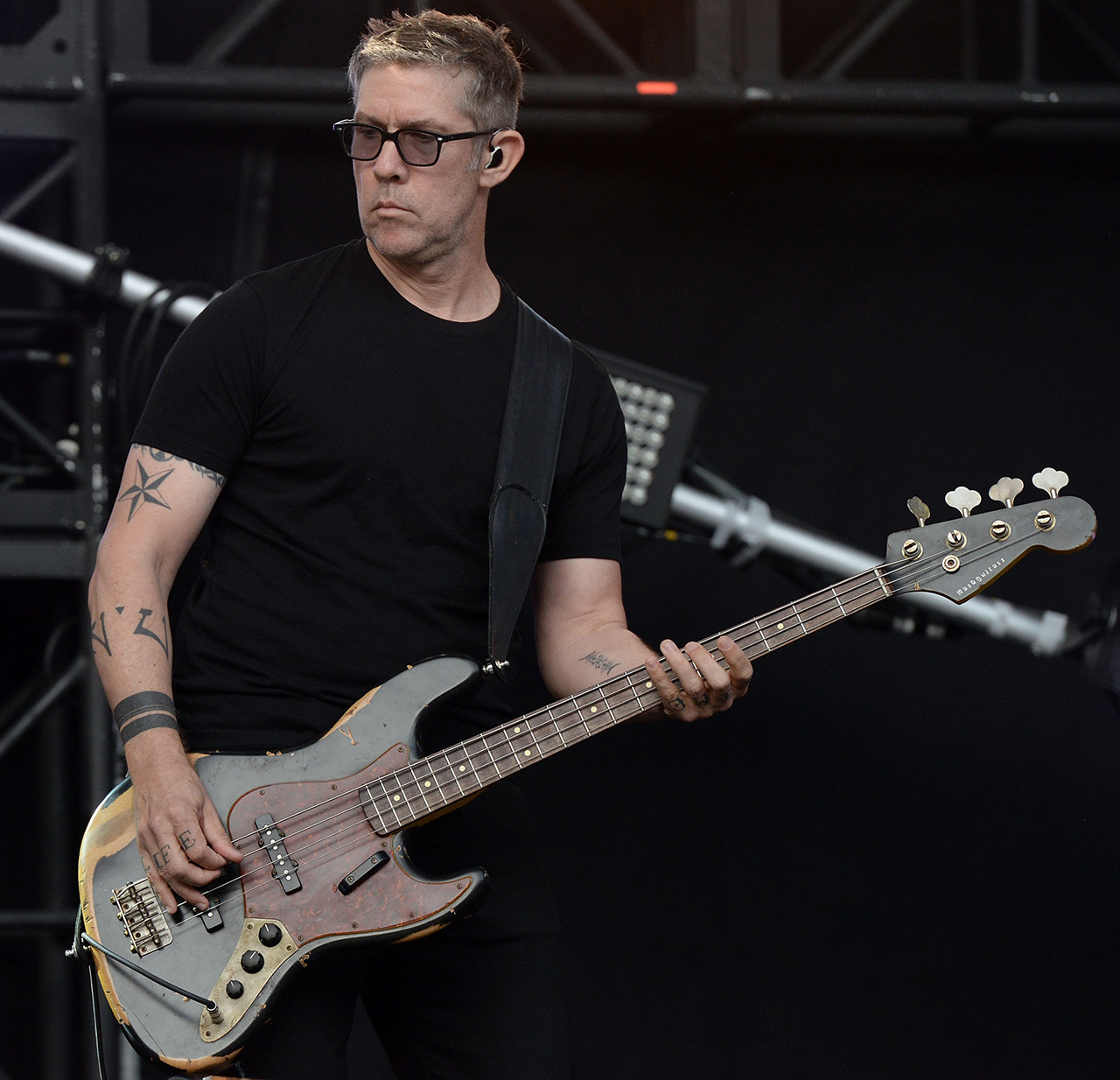
Your bass rig must have evolved to accommodate that change.
“In the early days it was very sparse. What was on the floor, I can’t even remember. There were times when I tried things but they didn’t last for very long – the classic Boss chorus pedal and things like that.
“But in this version of Jane’s, there’s two separate signal chains I use. On a few songs, we do psychedelic intros, so one chain is distortion and reverb that’s expressly for doing more textual creation and drone things.
Not every day does one travel to Santa Rosa to play a few songs with Metallica… They were great to me, too
“My primary chain uses a chorus pedal, but sparingly – because, again, I don’t want to sound like the 1980s. I use it for some brightness here and there in the midrange. I’ll even use a bit of octave stuff for a couple of spots. I’ve got a boost pedal to give tone and a distorted, crunchy, almost compressed sound.”
Dave Navarro has made no bones about your importance as the backbone of the classic Jane’s sound. Can you explain the chemistry you two share?
“Dave, Stephen and I are interlocking parts that create a machine. Over the last couple of years we played without Dave – which seemed unthinkable. When Dave came back and we were writing and recording, even though he was physically diminished by his Covid struggle, it immediately sounded like Jane’s Addiction.
“The sound made sense. There was no explaining it. No conversations needed to happen; it just immediately sounded like Jane’s because he intuitively knew how to connect with us. The interlocking pieces approach is natural within the context of Jane’s Addiction. The parts come together somewhat effortlessly.”
You’ve recently played with Garbage and Nine Inch Nails. From what you were saying about your take on collaborating, are those scenarios like approach number one for you?
“They really are. I feel like I play a very plain version of bass when I’m playing in those other situations, because I’m there just to serve the traditional role of the bass – to be the bridge between the kick drum and the guitar chords. I’m not trying to express my voice in that; I’m trying to be of service to someone else’s idea of what they want.”
So you’re not really artistically tied to those sorts of roles?
“I’ve often made the distinction that I feel like, in Jane’s Addiction, I’m trying to be the best artist I can be. When I work with other people, I’m trying to be an artisan.”
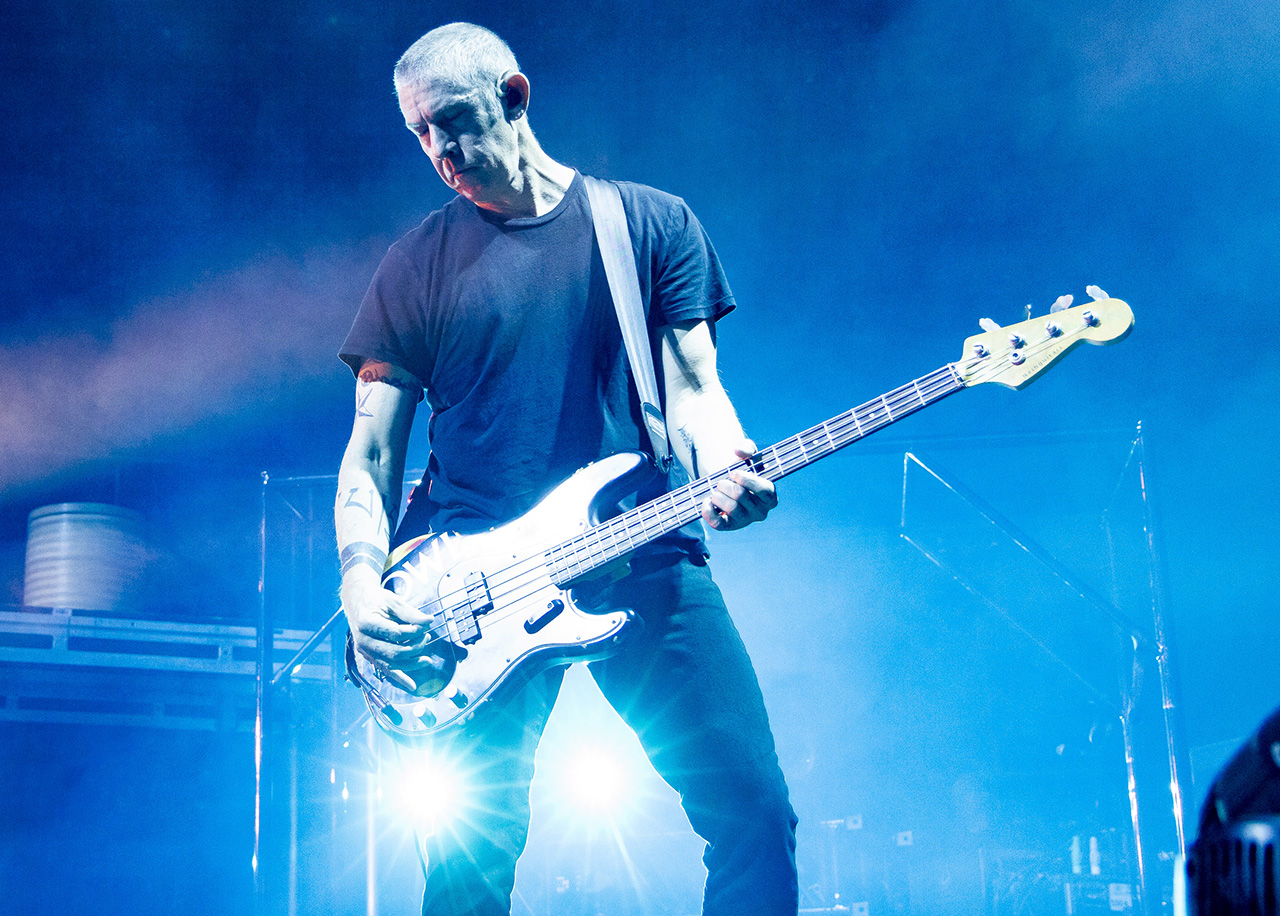
If the cards had fallen a certain way, you could have ended up as the bassist for Metallica or the Smashing Pumpkins. Have you thought much about what your life might be like had those gigs panned out?
“I have. I’ve thought about what that would be like – and it’s not all to the positive. Well, I shouldn’t say that in both of those cases. For different reasons, I went into them thinking that I didn’t hope to get the gig because I really thought that I wasn't right for them.
I found Corgan to be quite an inspiring guy to work with for the two or three weeks that I did
“So I entered into them as experiences, like, ‘I’m gonna have a life experience; I’m gonna create a memory.’ Not every day does one travel to Santa Rosa [California] to play a few songs with Metallica, you know? I didn't see it as a job audition; and in that way, it really delivered. They were great to me, too. I came away with a great day from my human lifetime.
“In the case of the Pumpkins, at the time, I didn't know Billy Corgan, but I knew he wasn’t the easiest person to work with. And because of my tendency to have trouble not speaking truth to power, if power needs speaking to, I just thought, ‘This is not going to last, but it’ll be interesting. It’ll be an interesting week or two.’ And it really was.”
Did you find Billy easier to work with than you anticipated?
“I found Corgan to be quite an inspiring guy to work with for the two or three weeks that I did.”
What did you learn about yourself as a person and musician that you've carried with you since?
“One of the things Corgan made me see in myself is that all the gadgets, and all the ability to record digitally and change things up with plugins, had really made us lazy. Those things became standards for writing parts that you could always fix later with ProTools.
“I might have known that before, but working with Corgan, he would go over things, over and over and over, and he and Jimmy Chamberlin would be in pre-production and say, ‘Okay, let’s try it again, but this time with a cymbal crash here.’ They worked really hard; it certainly was about finding the right thing and not stopping until you got it.
“It cast a light on how lazy I had been in some of my decision-making; and how a lot of the people I’d worked with were sort of lazy in the same way of being able to stop and fix it up later instead of finding the right part. I found that inspiring.”
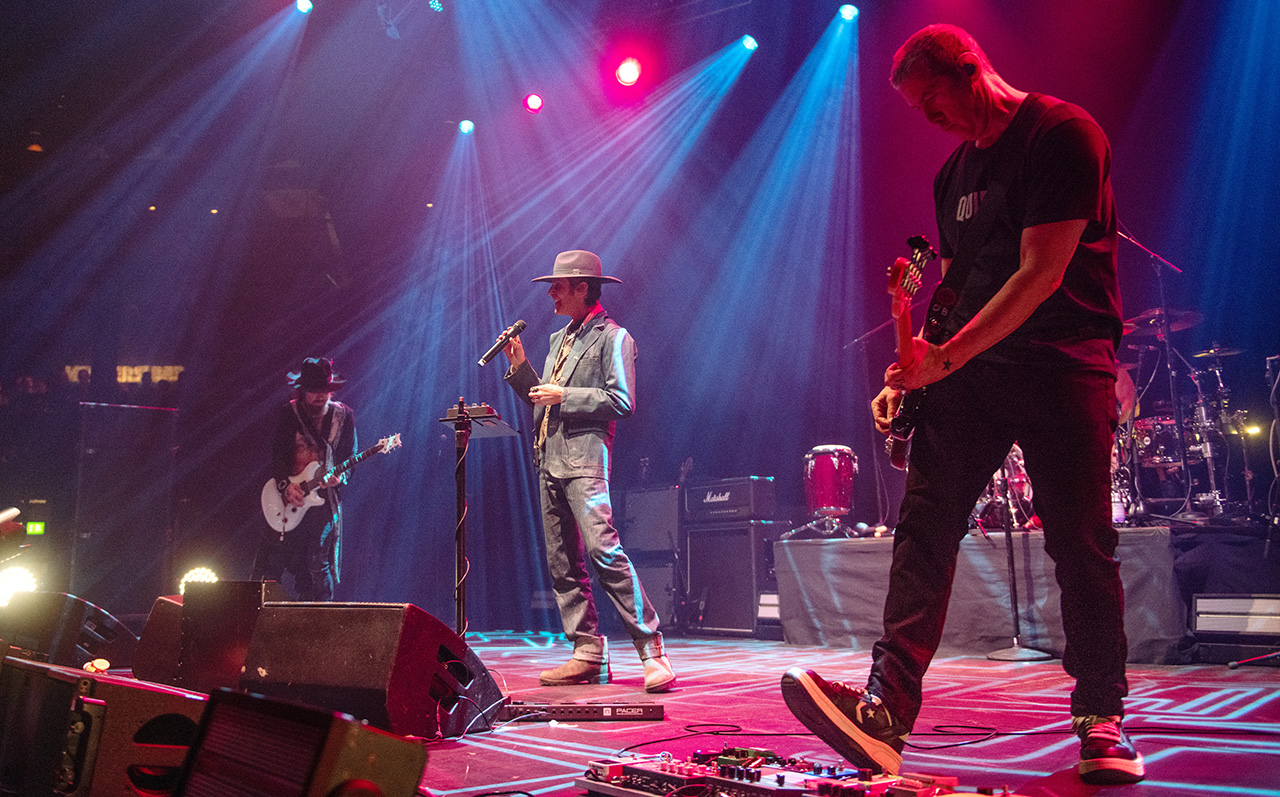
You make light of your tendency to challenge authority. But this time, Jane’s all seem to have reached a point where you can put your differences aside and focus on the music.
“Age has definitely played a part, you know? We’ve all gotten older and we’ve put aside some personal differences. And as a function of getting older, I’m really appreciative of the fact that there are still people who have come out and supported the band all these years, after having a relatively small output and certainly an inconsistency over the years. The short answer is that perspective played a big part in getting us here.”
Has less volatility changed the band’s creative process?
“Yes, definitely. The process is different in the details, but probably similar in the main because we can get things done from a distance. There’s less need to sit in a studio at the same time, wherein you can have those personalities emerge.”
There was an earnestness and an honesty to what we were doing that didn’t always exist in our peers
Imminent Redemption is out and there’s more on the way. Singles are one thing – but what’s the latest on an album?
“I’m guardedly optimistic that we can get some new music done. The phrase that Dave and I were talking about the other day is: ‘If there is a Jane’s Addiction in 2025, then there will be new music for sure.’ But you just never know if there’s going to be a band at all.
“When people ask about what was special about Jane’s the first time around, I always say that there was an earnestness and an honesty to what we were doing that didn’t always exist in our peers. People picked up on that, and that’s still true.
“We don’t make decisions based on the usual reasons. That’s how we were – we left a lot of record sales and a lot of money on the table during Jane’s 1.0 because we made decisions based on what we thought was truly right.
“I think there’s some of that spirit still alive in us. There’s an intrinsic concern for all our actual human stories, not just our professional lives. Certainly, we would like those two to align, but we're not willing to decouple them.
“For me personally – and I know it is for Dave, too – I feel like honesty is an important part of the people that we want to be. That informs us today, as it did many years ago.”
It sounds like, if Jane’s exists or not, you’ve made peace with each even if you’re not making music together.
“That’s definitely true. That bodes well for us continuing to work together under any circumstance. Whether it’s with Jane’s or not, we soldier on. I can’t speak to what the legacy of Jane’s Addiction is. But I know I’ve been somewhat uncompromising; I’ve been determined to keep Jane's Addiction sacred to myself. I carry it like it means a lot when I have friends who are involved.
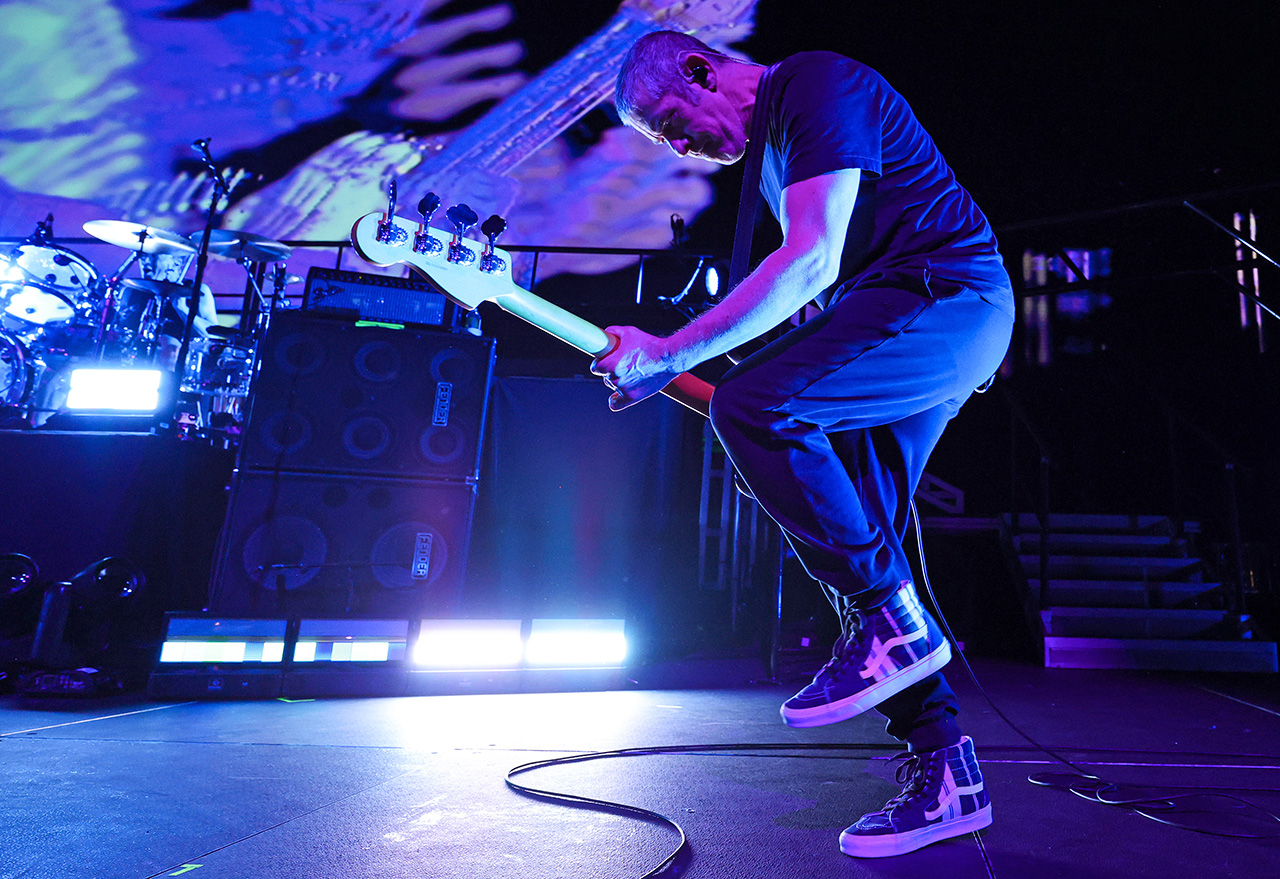
“On the fan forums, people send me clips of things and say, ‘This is truly, really meaningful to me.’ It’s inspiring for me to keep fighting for what I think is best for Jane’s Addiction. I define my life by that.
“Jane’s Addiction will be my personal legacy in a public sense. I’m aware of that, and it’s therefore precious to me in a way that’s worth fighting for.”
- Catch Jane’s Addiction on their current US tour.
Andrew Daly is an iced-coffee-addicted, oddball Telecaster-playing, alfredo pasta-loving journalist from Long Island, NY, who, in addition to being a contributing writer for Guitar World, scribes for Bass Player, Guitar Player, Guitarist, and MusicRadar. Andrew has interviewed favorites like Ace Frehley, Johnny Marr, Vito Bratta, Bruce Kulick, Joe Perry, Brad Whitford, Tom Morello, Rich Robinson, and Paul Stanley, while his all-time favorite (rhythm player), Keith Richards, continues to elude him.











